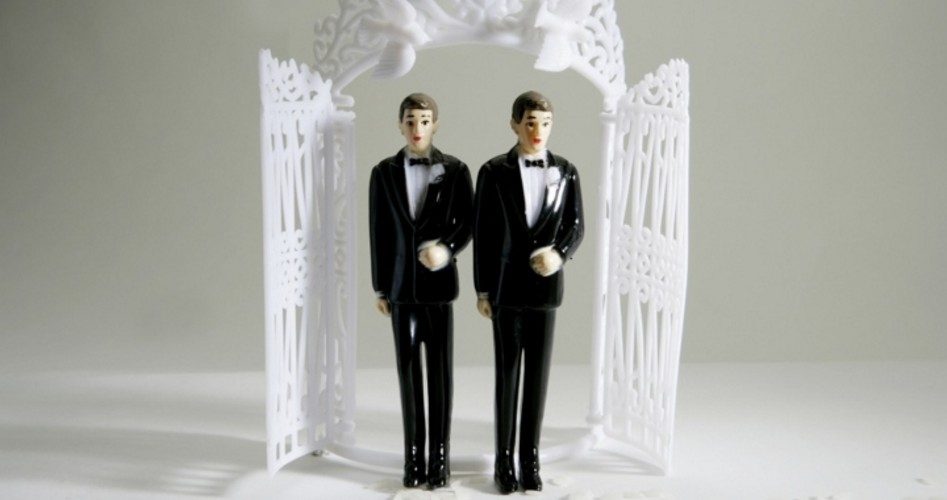
With voters in four states handing their support to the legalization of same-sex marriage, homosexual activists in Illinois think it might be a good time to further the normalization of their lifestyle in the Land of Lincoln. Maine, Maryland, and Washington State all passed referendums in support of gay marriage, and voters in Minnesota defeated a ballot initiative for a state constitutional amendment that would have defined marriage as only between a man and a woman. In 2010, openly homosexual Illinois State Representative Greg Harris helped push through the Religious Freedom Protection and Civil Union Act, which legalized same-sex civil unions, and plans to move on the legalization of full-blown homosexual marriage.
In a post-election interview with Crain’s Chicago Business, Harris said that passing a gay marriage law in Illinois “is something we should be doing…. The climate has changed in a huge way.” Another openly homosexual state legislator, Representative Kelly Cassidy, predicted that “we are on a when, not if trajectory” for passing same-sex marriage in Illinois.
Bernard Cherkasov, head of the homosexual activist group Equality Illinois, said his state has a sufficient number elected officials who would make a stand for redefining marriage. “Here in Illinois itself, we had many candidates throughout the state who supported marriage equality, who ran in tight, competitive races and who won election, including candidates who were endorsed by our own PAC, so that was fantastic,” Cherkasov told CBS News.
The Chicago Sun-Times reported that with veto-proof Democratic majorities in both houses of the state legislature, Chicago Mayor Rahm Emanuel has placed legalizing homosexual marriage as number three on his list of the legislative agenda items he will aggressively push in Springfield, the state’s capital. Emanuel told the Sun-Times that he was focusing on a “number of subjects — and the governor [Democrat Pat Quinn] has to be a part of that…. One is retirement security and pension reform…. Two … a casino for Chicago, but one in which … all of the resources will go into building new schools and modernizing our schools…. Third, I will continue to advocate that we also pass marriage equality and end the discrimination on the books.”
Governor Quinn has been an enthusiastic booster of gay marriage since he signed the civil unions bill in 2010. Last May he noted that “we’ve had more than 3,700 civil unions in almost every county in Illinois” since the law passed. “I think it’s working very well. This is a process of democracy. In order to get something changed you have to get a majority in both houses, and I plan to do that for marriage equality.”
While Quinn, Emanuel, and their gay activist cohorts may have the majority they need in the legislature to force through a same-sex marriage bill, the statistics for public support may come up short. According to David Smith, head of the Illinois Family Institute, a recent study from the Paul Simon Public Policy Institute suggests that only a little over 43 percent of registered Illinois voters support same-sex marriage. “I believe that number is exaggerated,” Smith told The New American. “Historically, polls have always underestimated the support for traditional marriage.”
If the Illinois statistics are accurate and mirror the national trend, then 60 percent of the state’s voters believe that “marriage is between one man and one woman.” A Polling Company survey found the majority of national voters in this year’s election in favor of traditional marriage. In fact, 51 percent strongly sided with traditional marriage, while a total of only 34 percent of national voters did not.
The poll, taken November 7, surveyed 800 people who voted either on Election Day or took advantage of the early voting option. “The outcome of the marriage votes in four very liberal states has caused some to speculate as to whether the American people have changed their views on marriage,” said Brian Brown, president of the National Organization for Marriage. “This scientific poll shows that the answer to that is, ‘no,’ they have not changed.”
Brown said that support for traditional marriage in the four states with marriage referendums crossed party lines, with votes for traditional marriage outperforming the Republican ticket by an average of over 6.5 points. He said, however, that same-sex marriage proponents outspent their traditional marriage opponents by four to one, which contributed significantly to the defeat.
“We were fighting the entirety of the political establishment in most of the states, including sitting governors in three of the states who campaigned heavily for gay marriage,” Brown told Baptist Press News. He added that “our opponents and some in the media will attempt to portray the election results as a changing point in how Americans view gay marriage, but that is not the case. Americans remain strongly in favor of marriage as the union of one man and one woman.”
Smith told The New American that he thinks the national numbers for traditional marriage are reflective of Illinois. He said that if the pro-same-sex-marriage political machine “honestly believes Illinois is ready to redefine marriage, [the Illinois Family Institute] would like to challenge them to put the question on the ballot for the people to decide, instead of trying to go push it through the court or through the General Assembly.” He added that “I doubt they would take this challenge, because they know there is a very good chance that the people of Illinois will reject such a proposal.”



